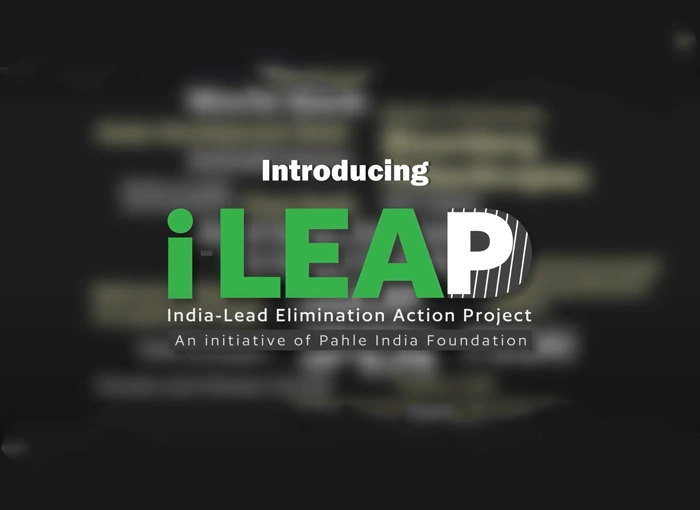A 2020 report by UNICEF and Pure Earth claimed 275 million Indian children have a blood lead level (BLL) over 5 µg/dl, i.e. the threshold for intervention identified by WHO. A NITI-Aayog – CSIR-NEERI study reviewed this report and analysed 36 studies from 1970 – 2014. They found that average BLLs in 23 states in India are well above 5 µg/dl.
What is i-LEAP
Under the umbrella of i-LEAP, the PIF team, led by the country’s most distinguished experts in public health and policy, are trying to bring together all the relevant stakeholders to better understand the issue, conduct the required research and develop policy recommendations which can be shared with the government.
The Challenge
Children are especially vulnerable, ingesting 4-5 times more lead from the same source than adults.
Lead exposure can lead to cognitive impairments in children, which leads to reduced intelligence quotient, reduced attention span and educational attainment as well as increased anti-social behaviour. The neurological and behavioural effects are considered irreversible and permanent.
In adults, lead poisoning causes increased risk of hypertension, cardiovascular issues and kidney damage.
The effects of lead poisoning on young Indians and the next generations are widespread and significant, with the potential to severely affect our demographic dividend.

FIGHTING LEAD POISONING
i-LEAP, the India – Lead Elimination Action Project, aims to bring together all the relevant stakeholders to fight against lead poisoning in India. While the situation is grim, India has successfully fought against health epidemics like polio and smallpox in the past and we are confident we can do it again.
Explore this website to find out more about how lead affects the body, its sources, our experts, how we plan to fight it as well as all the research on the issue, collated in our research portal.
SOURCE OF LEAD POISONING IN INDIA
Paint Production
Paint produced by small and medium enterprises, which hold 36% of the paint market (Toxic Links, 2013)
Food
Food grown in lead contaminated soil, water
Paint Dust
Lead-contaminated dust from paint, soil etc.
Spices
Adulterated spices
Acid Battery
Lead acid battery and e-waste recycling facilities
Ceramic
Ceramic plates and other food ware
Medicines
Adulterated traditional medicines
Cosmetics
Adulterated cosmetics










